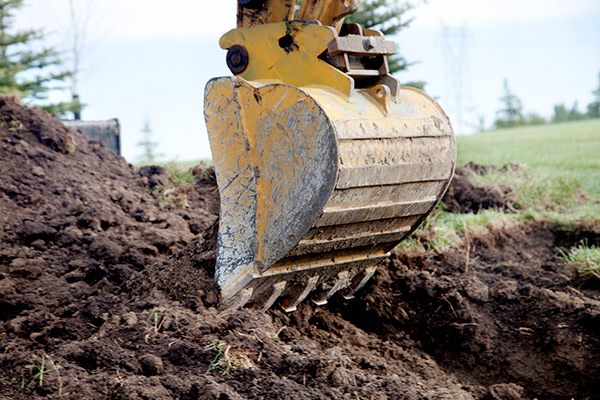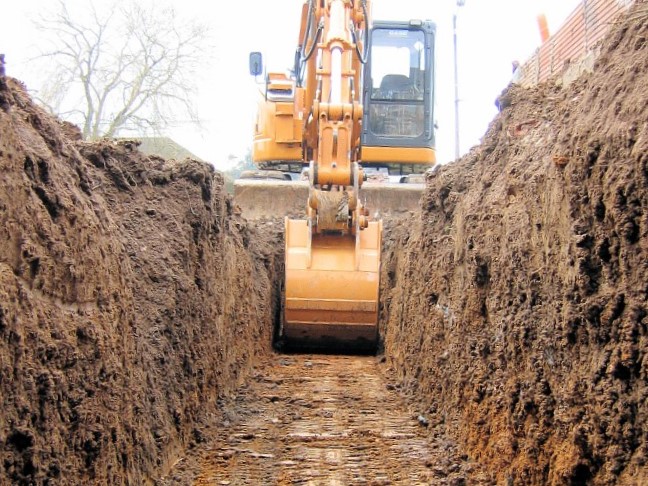Comprehensive Excavation Techniques: Mastering the Principles for Success
In the world of building and civil engineering, the relevance of reliable excavation approaches can not be overstated. The cautious planning, precise execution, and careful attention to information needed in excavation jobs demand an extensive strategy that incorporates various basic elements. From initial soil evaluation to the implementation of precaution and regular development monitoring, understanding these core components is necessary for attaining success in any type of excavation venture. However, truth proficiency exists not simply in comprehending these basics yet in effortlessly incorporating them to navigate the complexities of excavation tasks with skill.
Comprehending Excavation Project Planning

The initial stage of any kind of excavation job is the preparation stage, where crucial choices are made that can significantly impact the result of the job. Understanding the task range, timeline, and budget restrictions is important for developing a detailed excavation plan that makes sure the job's success.
One secret aspect of excavation task planning is the advancement of a detailed timeline that details the sequence of due dates, activities, and milestones. By very carefully thinking about all these elements during the planning phase, excavation tasks can be executed successfully and successfully, leading to successful results - septic ohio.
Soil Analysis and Site Evaluation
Performing extensive soil evaluation and website analysis is an important action in the prep work phase of any type of excavation project. Soil evaluation involves determining the composition, structure, and buildings of the dirt at the excavation site. This information is essential for understanding the dirt's bearing ability, dampness content, and capacity for erosion, which are essential factors in identifying the excavation approaches and devices required for the job.
Site assessment goes beyond dirt analysis and incorporates a wider evaluation of the total website conditions. This examination consists of identifying any kind of possible dangers, such as below ground energies, environmental worries, or unpredictable terrain, that can influence the excavation process. By extensively reviewing the site, job supervisors can develop effective excavation methods that focus on safety, effectiveness, and environmental management.
Making use of advanced technologies like ground-penetrating radar, dirt tasting, and drone surveys can improve the accuracy and effectiveness of dirt evaluation and site examination. Investing time and sources in these preliminary steps can ultimately conserve time and avoid pricey delays or difficulties throughout the excavation procedure.
Devices Option and Application
Reliable excavation jobs rely greatly on calculated equipment selection and use to ensure optimum performance and performance. Selecting the right equipment for the task is vital in taking full advantage of performance and minimizing downtime. Aspects such as the sort of soil, deepness of excavation, and project scope play a significant function in identifying one of the most appropriate devices for the task handy.

In enhancement to selecting the suitable devices, correct use is key to job success. Operators has to be trained to take care of the equipment securely and effectively - dump truck companies in ohio. Routine maintenance checks and timely repairs assist prevent breakdowns and ensure consistent efficiency throughout the project
Safety Steps and Laws Compliance
In the realm of excavation tasks, prioritizing precaution and conformity with policies is paramount to guaranteeing a protected and legally audio functional atmosphere. Precaution include a variety of methods, consisting of performing detailed site analyses, executing appropriate signs and obstacles, and providing appropriate safety training for all personnel associated with the excavation process. Adherence to policies, such as OSHA needs in the United States, makes sure that the excavation project fulfills the necessary requirements to shield employees, bystanders, and the surrounding environment.

Monitoring Progress and Adjusting Techniques
Just how can predict managers effectively track the improvement of excavation projects and adapt their techniques accordingly to enhance end results? i thought about this Surveillance progression is vital for guaranteeing that excavation tasks stay on track and meet due dates.

Verdict
In final thought, mastering the basics of thorough excavation techniques is crucial for the success of any project. By recognizing task planning, assessing soil and website problems, choosing ideal devices, complying with security regulations, and monitoring progression, job managers can make sure a efficient and smooth excavation process. Executing these techniques will certainly cause effective results and reduce potential dangers or problems throughout the excavation job.
The preliminary phase of any kind of excavation task is the preparation phase, where crucial choices are made that can significantly affect the outcome of the project. Comprehending the job scope, timeline, and spending plan constraints is critical for developing a thorough excavation plan that makes sure the task's success.
Just how can forecast managers properly track the advancement of excavation tasks and adjust their approaches as necessary to enhance results? By carefully keeping an eye on progression and being ready to adjust approaches, project supervisors can boost the general success of excavation projects.
By recognizing project preparation, evaluating dirt and website problems, picking proper tools, abiding with safety policies, and keeping an eye on progression, project managers can make certain a smooth and reliable excavation process.